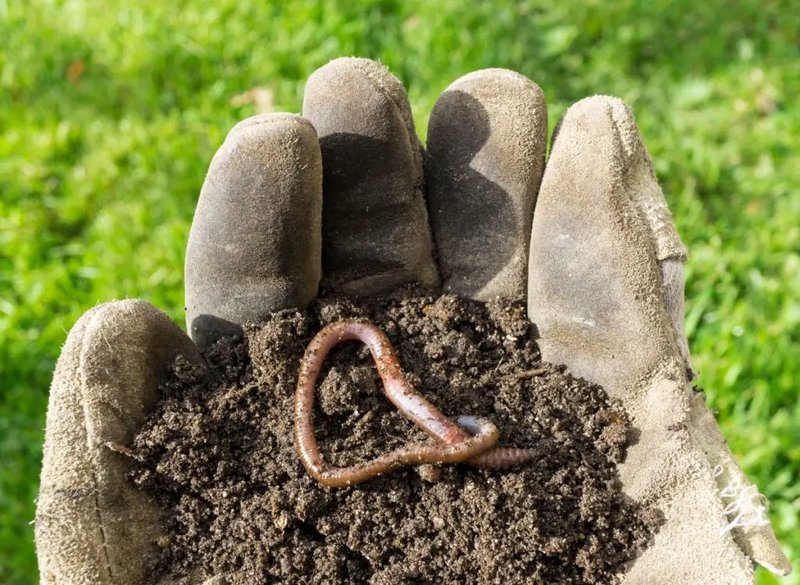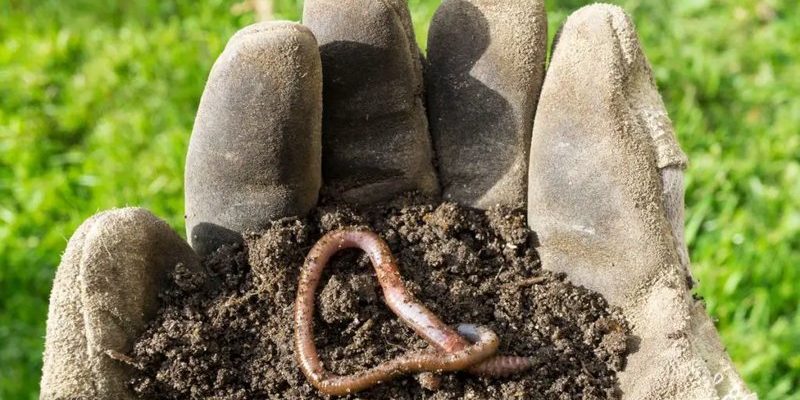
Protecting earthworms during garden cleanup is simple and requires just a bit of mindfulness. By making a few thoughtful choices, we can ensure that these little creatures stay safe and continue their crucial work. You might be wondering what specific actions to take, but don’t worry! Let’s go through the steps together, so you can clean up your garden while keeping your earthworm population healthy and thriving.
Understanding Earthworms and Their Role in the Garden
Before we dive into cleanup strategies, it’s important to understand why earthworms are so vital to your garden. These squirmy critters play multiple roles: they aerate the soil by creating tunnels, which helps air, water, and nutrients reach plant roots. Plus, as they consume organic matter, they break it down into rich nutrients that plants can absorb easily. You could say they’re the ultimate recyclers of the garden!
Moreover, earthworms contribute to soil structure and fertility. Their castings, or worm poop, are packed with nutrients. If your garden is healthy and full of earthworms, you can reduce the need for chemical fertilizers, making your gardening efforts more sustainable. With all this in mind, it’s clear that protecting earthworms should be a priority during garden cleanup.
Timing Your Cleanup to Avoid Disturbing Earthworms
Timing can make a significant difference. Earthworms are typically more active during specific times of the day and year. They thrive in moist soil and are often found near the surface after rainfall. Here’s the thing: if you’re planning a garden cleanup, avoid doing it right after a heavy rain, as that’s when earthworms come up for air. Instead, pick dry days when the soil is firm, as earthworms are likely deeper underground.
Consider scheduling your garden cleanup during the late afternoon or early evening. At this time, earthworms are less likely to surface. By picking these moments, you’ll minimize the risk of disturbing them. It’s all about taking a little extra time to think about when you venture into your garden.
Using Gentle Tools During Cleanup
Ever used a jackhammer to hang a picture? It’s way overkill, right? Similarly, using heavy, rough tools during garden cleanup can harm earthworms. Instead of shovels or heavy rakes, opt for lighter hand tools. Tools like hand forks or trowels are gentler and allow you to carefully move soil and debris without damaging the earthworms beneath.
When you’re raking leaves or cleaning up compost, try to work slowly and gently. This approach not only protects the earthworms but also allows you to spot them more easily. You might just discover a friendly earthworm or two as you tidy up. Just remember, the more care you take, the more likely you are to keep these critters safe.
Creating Safe Zones for Earthworms
One of the easiest ways to protect earthworms during garden cleanup is to create safe zones. Think of it like making a comfy little corner for them while you work. Here’s how:
1. Leave Some Leaf Litter: Instead of removing all fallen leaves, leave piles in corners of your garden. This will not only provide a habitat for earthworms but also add organic matter to the soil as it decomposes.
2. Mulch Thoughtfully: Consider using organic mulch like straw or shredded leaves. This will not only protect earthworms but also keep soil temperatures stable and retain moisture.
3. Designate a Worm-Friendly Spot: If you have compost bins or areas in your garden that are less frequented, designate those as “worm-friendly.” Avoid disturbing these spaces during cleanup, so worms can thrive without interruption.
These small adjustments can make a big difference in keeping earthworms happy and healthy in your garden.
Avoiding Pesticides and Chemical Treatments
If you want to protect earthworms, it’s essential to steer clear of pesticides and chemical fertilizers. Many of these products are not only harmful to pests but also toxic to beneficial organisms, including earthworms. Here’s the kicker – using these chemicals in your garden can degrade the very soil health you’re trying to improve.
Instead, look for natural alternatives. Compost is a fantastic way to nourish your soil while safeguarding earthworms. You can also try using organic fertilizers, like fish emulsion or seaweed extract, which provide nutrients without harming the ecosystem. When you choose natural methods, you’re not just protecting earthworms; you’re fostering a vibrant, healthy garden environment.
Incorporating Earth-Friendly Practices in Your Routine
Just like any good habit, incorporating earth-friendly practices into your routine can make a huge difference over time. Here are a few practices to consider:
– Practice Crop Rotation: This helps reduce soil compaction and encourages biodiversity, which benefits earthworms.
– Compost Regularly: By composting kitchen scraps and yard waste, you’re providing a nutrient-rich environment for earthworms.
– Grow Native Plants: Native plants are often hardier and better suited to local conditions. They can create a balanced ecosystem that supports earthworm populations.
These practices not only protect earthworms but also contribute to a flourishing garden ecosystem. They’re great for the environment and keep your garden healthy and vibrant.
Educating Yourself and Others
Finally, protecting earthworms isn’t just about what you do in your garden. It’s also about sharing that knowledge with others. The more people understand the importance of these little creatures, the more they can take steps to protect them. Consider chatting with friends or neighbors about the benefits of earthworms, or even starting a local gardening group focused on sustainability.
You might also want to explore local gardening workshops or online resources that discuss organic gardening practices. The more we educate ourselves and each other, the better we can care for our gardens and the earthworms that call them home.
In conclusion, protecting earthworms during garden cleanup isn’t just a nice idea; it’s essential for maintaining a healthy ecosystem. By being mindful of timing, using gentle tools, creating safe zones, avoiding harmful chemicals, incorporating earth-friendly practices, and educating others, you’re taking fantastic steps to ensure these squiggly wonders continue their vital work. So next time you head out to clean your garden, keep these tips in mind and give a little nod of appreciation to those hardworking earthworms!

